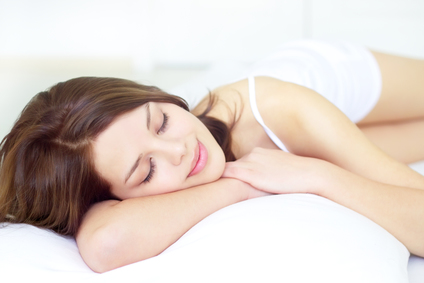Sleep disorders
By Jessica Brown
A sleep disorder is a medical condition that disrupts a person’s normal pattern of sleep, causing tiredness and irritability throughout the daytime. It can also affect judgment, mood and appetite.

A lack of sleep can often be psychological, for instance during periods of high stress. Prolonged and persistent sleep disturbances, however, can indicate a sleep disorder.
It is estimated that around 25% of the UK population suffer with a form of sleep disorder that can interfere with daily life. There are several types of sleep disorder, including insomnia, sleep apnea and narcolepsy.
The importance of sleep
In addition to your physical health, your sleep can be a reliable determinant of your mental health, too. Sleep is essential to a person’s physical and mental wellbeing, and lack of it can reduce your efficiency, ability to make rational decisions and deal with stressful situations. Sleep is imperative to both physical health and mental wellbeing.
What are the main types of sleep disorder?
Insomnia
Insomnia, the most common sleep disorder in the UK, affects roughly one third of the population. Sufferers have a prolonged inability to get an uninterrupted night’s sleep, trouble falling asleep and/or waking up too early in the morning.
Insomnia can often be symptomatic of a mental health problem, such as anxiety, stress or depression, and can be exacerbated by some medications, lack of exercise or too much caffeine consumption. Sufferers will often find themselves in a vicious cycle – where lack of sleep increases stress and irritability, which, in turn, affects sleep.
Sleep apnea
Sleep apnea is also a common sleep disorder. It affects a sleeper’s breathing pattern due to a blockage of the upper airways, which are the same muscles that are responsible for snoring. These pauses in breathing lead to emergency signals from the brain telling sufferers to wake up throughout the night to take in oxygen. These interruptions of sleep are not always remembered in the morning, but the disrupted sleep can lead to tiredness and irritability.
In more serious cases, sleep apnea can be a very serious disorder that requires the sufferer to wear a Continuous Positive Airway Pressure (CPAP), a mask-like device, when sleeping. Losing weight is another way to avoid/abate symptoms.
Circadian rhythm disorder
A person’s circadian rhythm is more commonly referred to as ‘body clock’. When disrupted, it can be difficult to obtain a normal sleeping pattern. Disruptions to a person’s circadian rhythm can be caused by a number of factors, such as shift work, jet lag and medications.
Restless legs syndrome
Restless leg syndrome is a sleep disorder that affects over 5% of the UK population. Sufferers experience the urge to move their arms and legs throughout the night, due to uncomfortable sensations such as tingling, aching or a crawling sensation.
The disorder can sometimes be linked to iron deficiencies, but there is no consensus on the cause for the majority of cases. Treatment can include quitting smoking, avoiding caffeine and alcohol and exercising regularly.
Narcolepsy
Narcolepsy is a sleep disorder that occurs during the day, as opposed to at night. Sufferers uncontrollably fall asleep during the day due to a dysfunction in the part of the brain responsible for controlling sleep. It is thought that around 80% of cases go undiagnosed. There is currently no cure for narcolepsy.
Causes of sleep disorders
There are several reasons behind sleep disorders, but one of the main contributing factors is mental health problems:
Anxiety
Sufferers of anxiety can often find that their minds work on overdrive – during the day and at nighttime. This can cause difficulty in getting to sleep, and staying asleep throughout the night.
Panic Disorder
A person who suffers from a panic disorder will frequently experience high levels of physical symptoms related to anxiety. Panic attacks can occur throughout the night, interrupting sleep. In this case, CBT and/or medication can help get a good night’s sleep.
Depression
Insomnia is common amongst sufferers of depression, statistically – around 80% of sufferers of depression will experience frequent difficulty in getting to sleep and staying asleep. Again, a mixture of CBT and medication can help to alleviate these symptoms.
Treatment for sleep disorders
The exact treatment required for sleep disorders depends on the specific disorder. Any sleep disorder however can be improved, to some degree, by lifestyle changes. For instance, narcolepsy is defined as a neurological condition, but attacks can be triggered by psychological causes. Also, there is a theory that napping during the day can help alleviate symptoms.
Due to many sleep disorders having psychological causes, there are treatments available that don’t involve medication. If stress is identified as a factor affecting your sleep, CBT, hypnotherapy and lifestyle changes can improve symptoms. Relaxation techniques, such as meditation, can also be successful in reducing stress and improving sleep. If your lifestyle is hectic – setting aside time to relax and add relaxing activities, such as a hot bath, to your routine can significantly improve your stress levels, subsequently helping with sleep.
Sleeping tablets can be used in treating some disorders, such as insomnia. Talking therapies are, however, strongly recommended as a long-term solution and have less risk attached. Sleep disorders can be caused by a multitude of psychological problems. There is recent evidence, for example, suggesting that insomnia can be caused by a fear of the dark. Talking therapies, therefore, will help to identify the root cause and tackle it head on.





